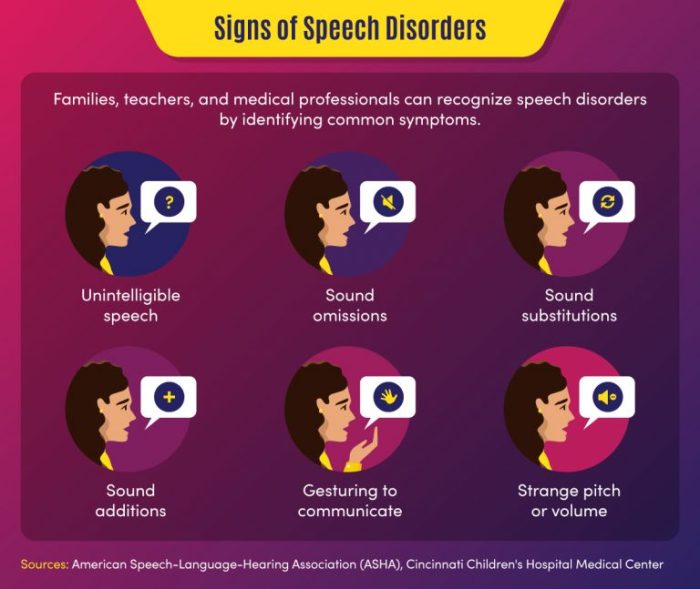Do i have a speech impediment quiz – Embark on a self-discovery journey with our comprehensive “Do I Have a Speech Impediment?” quiz. Designed to provide valuable insights, this assessment delves into the intricacies of speech impediments, empowering you with a deeper understanding of your communication patterns.
Through a series of carefully crafted questions, you’ll explore the potential signs and characteristics associated with various speech impediments. By reflecting on your own speech patterns, you’ll gain valuable insights into areas that may require further evaluation.
Understanding Speech Impediments

Speech impediments are conditions that affect an individual’s ability to produce speech sounds accurately and fluently. They can range from mild to severe and impact a person’s communication and social interactions.
There are several common types of speech impediments, including:
- Articulation disorders:Difficulty producing specific speech sounds correctly.
- Phonological disorders:Difficulty using and understanding the sound system of a language.
- Fluency disorders (stuttering):Interruptions in the flow of speech, such as repetitions, prolongations, or hesitations.
- Voice disorders:Problems with the quality or pitch of the voice.
The causes of speech impediments vary depending on the type. Some may be caused by physical abnormalities in the speech mechanism, while others may be due to neurological or developmental issues.
Identifying Potential Speech Impediments
Identifying potential speech impediments is crucial for early intervention and support. Some key signs and characteristics to look for include:
- Difficulty pronouncing certain sounds or words.
- Omitting or adding sounds or syllables.
- Substituting one sound for another.
- Hesitations, repetitions, or prolongations in speech.
- Changes in the pitch or quality of the voice.
It is important to note that not all speech errors indicate an impediment. Children often make speech errors as they develop their language skills. However, persistent or severe errors may warrant further evaluation.
Self-Assessment Techniques
Individuals can perform simple self-assessment methods to identify potential speech impediments. These include:
- Recording and analyzing one’s own speech:Using a recording device to capture speech and listening for any errors or difficulties.
- Reading aloud:Reading from a text and paying attention to any difficulties or hesitations in pronunciation.
- Talking to a trusted listener:Asking a friend or family member to provide feedback on any speech difficulties they may notice.
Self-assessment can provide valuable insights but should not replace a professional evaluation by a speech-language pathologist.
Importance of Professional Evaluation

Seeking professional evaluation is essential for a comprehensive diagnosis and appropriate treatment of speech impediments. Speech-language pathologists (SLPs) are trained professionals who specialize in diagnosing and treating communication disorders, including speech impediments.
SLPs use a variety of assessment techniques, including:
- Speech and language testing:Assessing articulation, fluency, and other aspects of speech production.
- Medical examination:Ruling out any underlying medical conditions that may contribute to the speech impediment.
- Observation:Observing the individual’s speech in different contexts.
Professional evaluation provides an accurate diagnosis, which is crucial for determining the most effective treatment plan.
Resources and Support
There are numerous organizations and resources available to support individuals with speech impediments and their families.
- National Stuttering Association (NSA):Provides support and resources for individuals who stutter and their families.
- American Speech-Language-Hearing Association (ASHA):Offers information and resources on speech impediments and speech-language pathology.
- National Institute on Deafness and Other Communication Disorders (NIDCD):Conducts research and provides information on communication disorders, including speech impediments.
Speech impediments can be effectively managed with appropriate therapies and interventions. Early identification and intervention can significantly improve communication skills and overall quality of life.
FAQ Section: Do I Have A Speech Impediment Quiz
What are the most common types of speech impediments?
Stuttering, lisping, and articulation disorders are among the most prevalent speech impediments.
Can speech impediments be treated?
Yes, speech therapy can significantly improve or even eliminate speech impediments with proper intervention and practice.
What are the benefits of early intervention for speech impediments?
Early intervention enhances communication skills, boosts self-confidence, and promotes overall academic and social development.